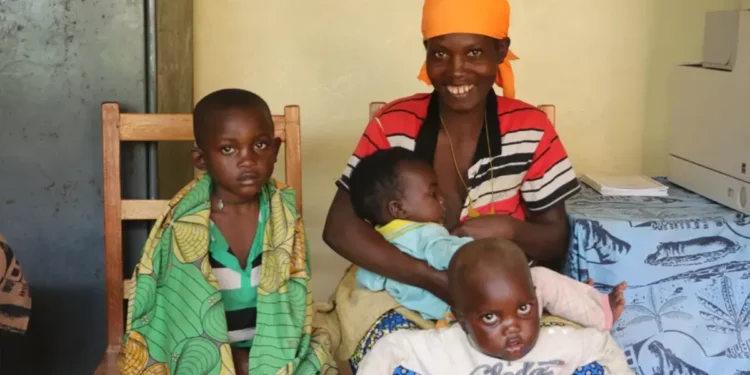Ms. Joyce Asare Kissi, the Head of the Nutrition Unit at Tema General Hospital, has highlighted the impact of the unavailability of Ready-to-Use Therapeutic Food (RUTF), commonly known as plumpy nuts, on the treatment of Severe Acute Malnutrition (SAM).
The fortified peanut butter-like paste, containing essential macronutrients, is crucial for addressing SAM, also known as ‘kwashiorkor' in Ghana.
In an interview, Ms Kissi explained that the RUTF, previously provided by the United Nations Children's Fund (UNICEF), has become a scarce commodity in recent years.
The Tema General Hospital, a key facility for treating SAM inpatients, now relies on a local company in Kumasi for an alternative treatment known as ‘Project Peanut Butter.' Unfortunately, even this local alternative is no longer available as the production by the company has ceased.
To address the shortage, Ms. Kissi shared that nutritionists at the Tema General Hospital have resorted to preparing their ready-to-use therapeutic food using the known formulae. However, she emphasized that this approach is costly.
Children suffering from kwashiorkor and under the care of the hospital are fed and treated under the supervision of health officials during admission. For those with other medical conditions, treatment is provided under Inpatient care (IPC), managing both conditions concurrently.
When discharged, the hospital provides the necessary feed for continued treatment. The packaged food and treatment milk is designed for ease of use, with caregivers taking a pack at a time to prevent contamination. Despite the hospital's success in using its therapeutic food, Ms Kissi pointed out that the treatment is not covered by the National Health Insurance Scheme (NHIS). As a result, many parents, unable to afford the feed, discontinue treatment after discharge, leading to relapses and, in some cases, fatalities.
Ms Kissi appealed to the government and the National Health Insurance Authority to include SAM treatment in the NHIS, emphasizing the persistent existence of kwashiorkor in Ghana and its developmental challenges for patients. The Tema General Hospital, the sole facility with inpatient care for kwashiorkor treatment in Tema and its environs, encounters an average of two severe acute malnutrition cases per week.
In a plea for support, Ms. Kissi called on organizations and individuals to add the nutrition unit of the Tema General Hospital to their assistance list. The unit specifically needs baby diapers, grains, and children's clothing to aid economically disadvantaged mothers during admission.

























